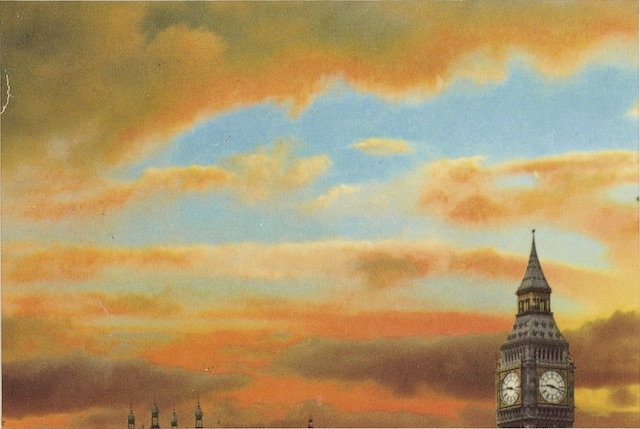The events of May 68 gave me my first taste of the mischief and subversion which the Situationists injected into the student occupation. It was also my first encounter with what I later discovered was called ‘détournement’, an idea that fundamentally changed my work. But in 68 I was two years away from reading [Guy] Debord’s ‘Society of the Spectacle’ in English, a tract that changed everything for me.
As a first year student at the Slade I was an enthusiastic but naive participant in the occupation of the college to support the Paris sit-ins. I was also too naive to realise what an amazing moment it was to be a student at the Slade and UCL. A new curriculum for art education based on [Ernst] Gombrich’s recently published Art and Illusion [1960] was being implemented at the Slade by [William] Coldstream and included a nascent film department, which later significantly contributed to film theory through the journal Screen. Gombrich was our art history professor. [Leopold] Ettlinger taught a course on neoclassicism. Richard Gregory, who had published The Eye and Brain [1966], did a course on the psychology of visual perception. Richard Wollheim opened his doors to Slade students to attend his aesthetics course which became ‘Art and Its Objects’. At the time Mary Douglas was doing her ‘Purity and Danger’ seminars and Frank Kermode was giving the lecture series which formed the basis for his classic The Sense of an Ending [1967]. We were welcome to attend anything that interested us. The intellectual atmosphere was so intense and stimulating it was difficult to find time for the studio.
I remember Stuart Brisley, fresh from the Hornsey sit-in addressing us alongside sympathetic activists from other departments of UCL, suggesting an occupation of the college and several other departments in solidarity with Paris and Hornsey. I remember that the overwhelming majority voted to do so, my own hand enthusiastically reaching skyward with the rest. What did we need of art-history, aesthetics, literary or film theory, perceptual psychology or social anthropology? We were taking possession of our own destinies. We would take charge of what we learned.
The effect of the occupation was immediate and palpable. Art students were no longer welcome guests in other university departments. Contact with the Warburg and Courtauld ceased. The intellectuals either took flight or returned to the sanctity of their offices.
I remember after the revolution we were offered a course on Cuban poster design.
From the May 2018 issue of ArtReview
